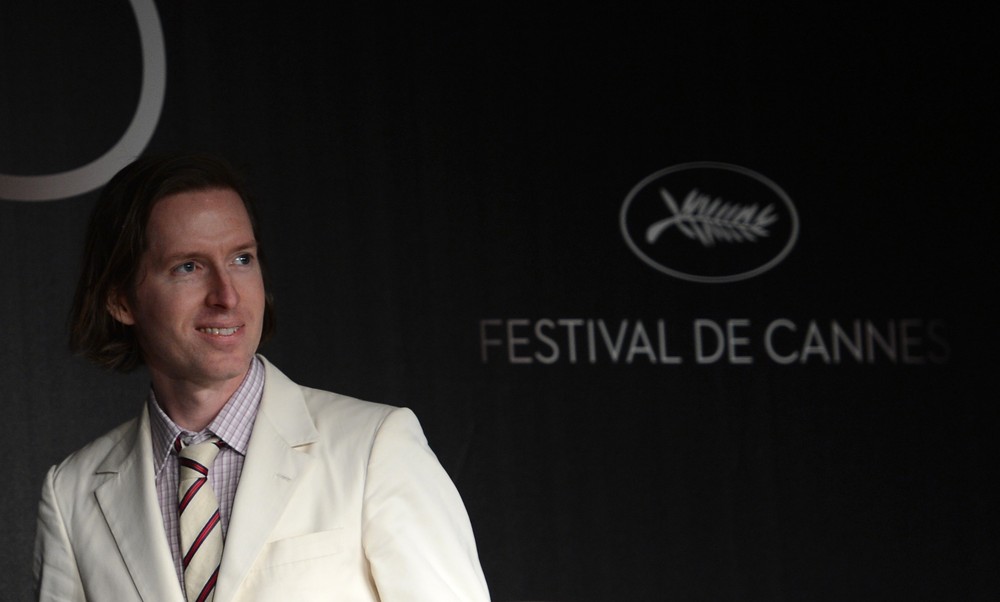
"Moonrise Kingdom" doesn't open for another week or so but already small details have started to leak out about what's up next for writer/director Wes Anderson. He recently told BAZAAR that he was halfway done writing the script for his next feature saying, "it's a film I want to make in Europe, a Euro movie." Speaking with Vulture, he managed to let slip a few more details about the film, including the fact that the screenplay seems to be actually complete now. When asked if living in France (the filmmaker splits his time between NYC and Paris) has had any effect on his filmmaking, Anderson said, "Well, I think I got more of the French sensibility in my work from watching French movies, probably, than living in France. But there’s actually a script I’m working on now that’s a European story and it kind of [draws from] my own experience here, in the details that are finding their way into it."
Anderson seems to have a stable of co-writers in rotation to help him fill out his work – Owen Wilson on his first three features, Noah Baumbach for "The Life Aquatic with Steve Zissou" and "The Fantastic Mr. Fox," and Roman Coppola for "The Darjeeling Limited" (along with Jason Schwartzman) and "Moonrise Kingdom." But it looks like this time he may be writing this new film on his own, though seemingly it developed with a pal. "I’ve already written the script, but the story I made up with a friend," Anderson told Vulture, indicating that the screenplay has actually been completed, at least as an early draft. He also shot down the notion the friend might be one of his former collaborators or any famous celebrity friend or screenwriter. "He’s not involved with the movie business, he’s just an old friend. And in fact, he’s an old friend who’s very bright and funny and talented, but we also have a mutual friend who’s the inspiration for one of the main characters. So we’ve partly used our shared experiences to kind of build that character."
In a soon-to-be-published interview with The Playlist's Simon Abrams in Cannes, Anderson let out one further small little detail when jokingly discussing the amount of canines that have died or been abused in his films — "The Royal Tenenbaums" (died), 'Life Aquatic' (abused) and (spoiler ahead) another incident his latest feature. "I've written a new script and there's a dog, there's at least one dog in the story but there's no physical harm threatened to it," the director chuckled.
So while it would seem that Anderson is writing the film on his own it's possible he may bring in someone to collaborate with him later on in the process. Or at least that's what he did with "Moonrise Kingdom." Anderson told The Playlist that Coppola was brought on about a year into the writing sessions for 'Moonrise' to help him solve some problems developing the story. “I'd been working on the script for about a year and I only got so far," he said. "I had fifteen pages, I had all of these notes and ideas and things but I couldn't make it into a story. So then I asked Roman to come help me and in a month we finished the whole script. So he really helped me figure it out and figure out how to make it into something chronological."
As for those critics who might be hoping to see something a little different from Anderson next time around, the auteur says he has no plans to change up his famously idiosyncratic style. “For me I’m usually trying to make a world for the characters to live in that I’m hoping the audience hasn’t been there before," he told Hollywood Elsewhere, also in Cannes. "And [thinking] ‘How are we going to make that?’ So what I feel often meticulousness, that’s just me trying to put more in there. I'm not a minimalist. That’s just sort of [like] my natural handwriting. My natural handwriting is neat and it is like my personality. Somewhere along the way I made this choice: I can force myself to not be what I feel I naturally am or I can just go with it and develop it. Because it’s certainly simple enough for someone to say, ‘Well you want to see a movie made another way, I can point you in the direction of many other movie directors who’ll give you that.’ But this [style of filmmaking] is the thing I have found my way into.”

